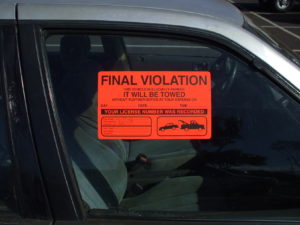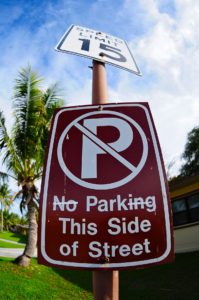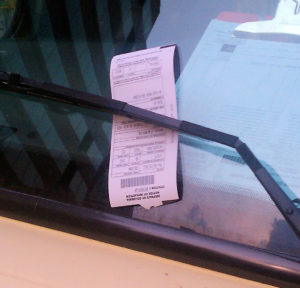Traffic citations and traffic tickets are documents that state an individual has been made aware of a traffic violation by a law enforcement agent, and the two terms can be used interchangeably. When you receive a citation—or ticket—it’s important to evaluate what your options are. Failure to respond correctly could result in added fines, criminal charges, or unnecessary increases to insurance premiums.

Types of Citations
There are three main ways to classify a traffic citation:
- Penalty vs Warning:While some jurisdictions mandate that the observing officer penalize the offender for certain violations, the officer can choose to issue a warning.
- Moving vs Non-moving:Non-moving violations can include parking infractions as well as non-functioning safety equipment like the seatbelt.
- Criminal vs Non-criminal:Violations that cause damage to people or property, or pose a serious threat, can be considered criminal violations, like driving recklessly, being under the influence of drugs or alcohol, driving without an insurance, driving with a suspended license or without a valid driver’s license.

How to Respond to a Citation
The best way to respond and to avoid further penalties will vary depending on the type and severity of the ticket. Though specific traffic laws differ by state and, in some cases, by county, there are three primary types of tickets.
Written Warnings
A written warning from a police officer requires no further action, but we recommend you to address the cause of the warning promptly. Warnings will not appear on your records, but may be noted by the law enforcement agency that issued them. These records could affect how future violations within the agency’s jurisdiction are handled by law enforcement agents.
For example, if you’re given a warning for non-functioning brake lights, you’re more likely to receive a ticket if you’re pulled over in the same jurisdiction for the same reason. Correctable violations such as this should be fixed as soon as possible after receiving a written warning in order to reduce the chances of future tickets and harsher penalties.
In some cases, or jurisdictions, you may instead be issued a citation, but with the condition that if you remedy the problem and return to a police station within a certain period, say 48 hours, the citation will be thrown out, and will never appear on your record.
Fines or Penalties
If your citation includes a fine or penalty then you will be given a timeframe within which you are required to respond. If you fail to do so, you risk a higher fine or other consequence.
Here are some of the most common courses of actions when issued a citation like this:
- You plea guilty and pay the fine, usually online, by mail, by phone or in person depending on what’s accepted in the jurisdiction where you were issued the citation.
- You plea not guilty, and thus elect to contest the charge in court. You can ask to have your court date delayed, if necessary.
- You pursue a deferral, pay a fee, and after a period of time, if you have not received any further citations your ticket will be dismissed, and will not appear on your driving record. If you receive a citation within your deferral period, you are held responsible for the penalty on the original violations, and both the new and original violations appear on your driving record. Deferrals are not an available in all jurisdictions.
Criminal Violations
Criminal violations mandate that you go to court to attend an arraignment. During your arraignment, you hear the charges against you and choose whether to plea guilty, plea not guilty, or explore other legal options. Examples of violations that are criminal in nature include driving recklessly, under the influence of drugs or alcohol, without insurance or without a valid driver’s license.
Effects of a Citation on Your Motor Vehicle Record
When you are found guilty of a traffic violation the information is recorded on your motor vehicle record (MVR). The next time your insurer views your MVR, which will happen when you renew or shop for insurance, the company will know that you committed a traffic violation, and will likely increase your insurance premiums. There are, however, several ways in which you may be able to keep a ticket off your driving record, depending on the laws in the jurisdiction that issued your ticket. These steps could include:
- Enrolling in a defensive driving course
- Mitigation (pleading guilty but asking for leniency)
- Contacting the county clerk
- Contesting your charge in court
Your MVR is maintained by the state in which you are licensed. Information related to licensing, traffic violations, and traffic accidents are all included in this record. All but nine states use a driver violation points system that is part of your MVR and can affect your license standing. In these systems drivers receive points for violating traffic laws, with the number of points received determined by the type of violation. Violations that you are charged with out of state are, with few exceptions, reported back to the state that you are licensed in. This means that these violations are added to your motor vehicle record and often count as points on your license.

Does a Ticket Stay with You Forever?
Generally, traffic violations do not affect you forever. Insurers generally only look back 3-5 years, so minor infractions only have a temporary negative effect on your insurance costs. If your violation is serious enough or if you fail to pay a ticket it can be added to your criminal record. Incidents like these can have more lasting detrimental effects on your insurance rates.
Criminal records appear on background checks and therefore can also negatively affect everything from potential employment to adoption eligibility. Whether a violation appears on your criminal or motor vehicle record, most states will allow you to apply to expunge an item from your record. The process and eligibility for expungement varies from state to state but if you succeed in doing so the violation will no longer show up on your criminal record.
In certain cases, and in certain jurisdictions, a conviction that is expunged from your criminal record may stay on your driving record. If your insurance company is aware of your conviction prior to its expungement, either because it was not removed from your MVR or because they were aware of the conviction before its removal, they may charge you an increased rate.
